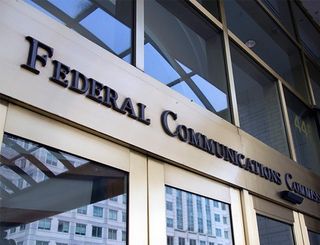WDBJ Fights FCC Indecency Fine

CBS affiliate WDBJ-TV Roanoke, Va., has filed its opposition to the FCC's proposed $325,000 indecency fine, which the commission imposed for a brief video clip, albeit of a sexual organ, which the station says was inadvertently included in a story about a "controversy in Cave Spring, Va."
That opposition includes a challenge to the FCC's indecency policy statement that was issued under then FCC chairman Julius Genachowski but never adopted by the commission as official policy.
In a 55-page filing at the FCC that included a long list of awards to the station for its news coverage, WDBJ attorneys said there were a number of reasons why the FCC's fine was off the mark, including that the broadcast did not violate the FCC's indecency policy, that imposing the fine violates the First Amendment, that WDBJ lacked the necessary "scienter," a legal term for meaning to do what it did, and that even if a fine were warranted, imposing the maximum fine—the highest ever proposed for a single incident—for an inadvertent and momentary display was not warranted.
The story was about a former adult film star working for the rescue squad. In illustrating the story the station used footage from an adult Web site and, due to "equipment limitations," nobody saw the small, erect sexual organ at the extreme margin of the screen, which made it onto the image in a story for the 6 p.m. news.
The filing says the fine proposal rests on numerous erroneous assumptions, including that the image was visible to station personnel, that there had been ample time to screen it before air, that the error could have been prevented if station personnel were more attentive, and that the material was plainly visible to the audience
The station also says the FCC action violates the First Amendment as applied because it targets content in a bona fide newscast. The FCC has no official news exemption, but has historically given that content wider berth. "The FCC's response that it has repeatedly said there is no 'news exemption' is the problem, not the answer," said WDBJ, "given the agency's inability to articulate a discernible standard by which broadcasters can accurately predict what speech is prohibited."
As for levying the maximum fine, the station says the FCC provides no justification for a fine forty-six times the base amount for a "fleeting, inadvertent, and isolated transmission."
Broadcasting & Cable Newsletter
The smarter way to stay on top of broadcasting and cable industry. Sign up below
“While WDBJ regrets that an offensive image was inadvertently broadcast, we believe that the First Amendment does not allow the FCC to ‘throw the book’ at a station for unintentionally including a fleeting inappropriate image in a newscast about a legitimate story," said WDBJ president and GM Jeffrey Marks in announcing the station had filed its opposition with the commission. "WDBJ has taken steps to ensure that this kind of incident cannot be repeated," he said. "We have asked the FCC to withdraw its proposed forfeiture.”
Contributing editor John Eggerton has been an editor and/or writer on media regulation, legislation and policy for over four decades, including covering the FCC, FTC, Congress, the major media trade associations, and the federal courts. In addition to Multichannel News and Broadcasting + Cable, his work has appeared in Radio World, TV Technology, TV Fax, This Week in Consumer Electronics, Variety and the Encyclopedia Britannica.

